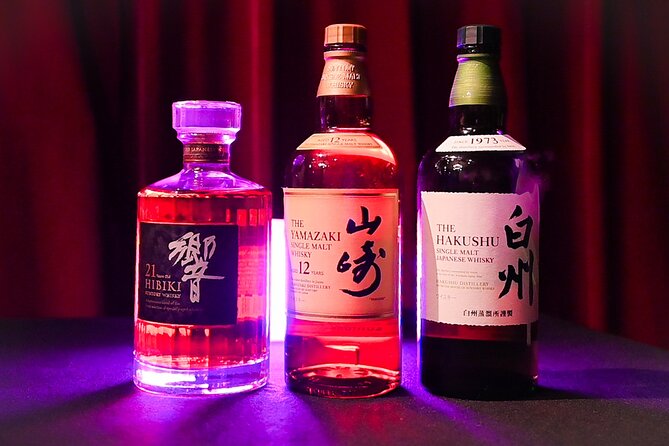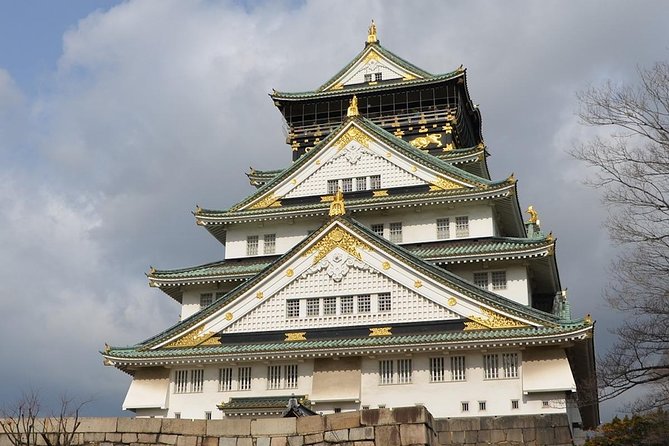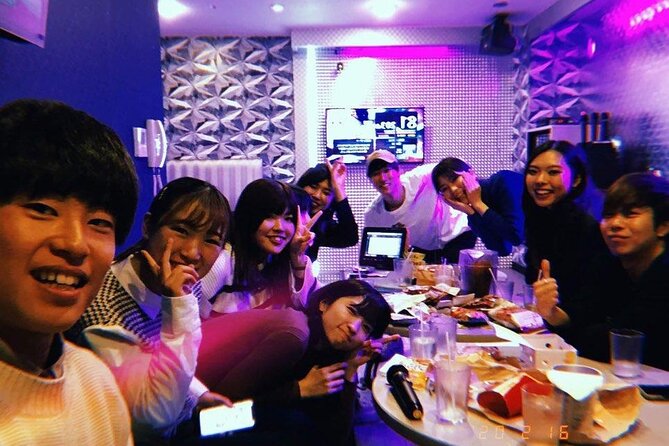Venture back in time to Tokyo’s bustling streets and uncover the secrets of Japanese culture through an immersive Tea Ceremony and Yukata experience.
As participants don the elegant Yukata attire and engage in the intricate rituals of the Tea Ceremony, they are transported into a world where tradition and modernity merge seamlessly.
The delicate art of brewing tea and the symbolism behind each movement invite guests to explore Japan’s cultural essence in a truly authentic setting.
Curious to uncover the hidden meanings behind these ancient practices?
Quick Takeaways
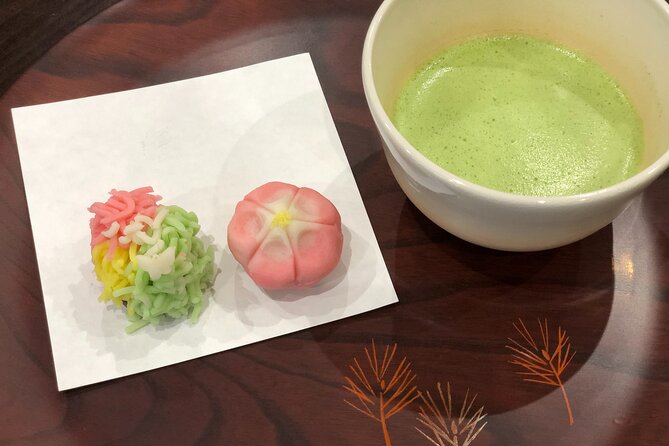
- Immerse in Japanese culture through tea ceremony and yukata experience
- Gain insights into the historical and cultural significance of tea ceremonies
- Learn precise movements and symbolism in tea preparation and yukata dressing
- Embrace tradition and modernity through the art of tea and yukata ceremonies
Tea Ceremony Overview
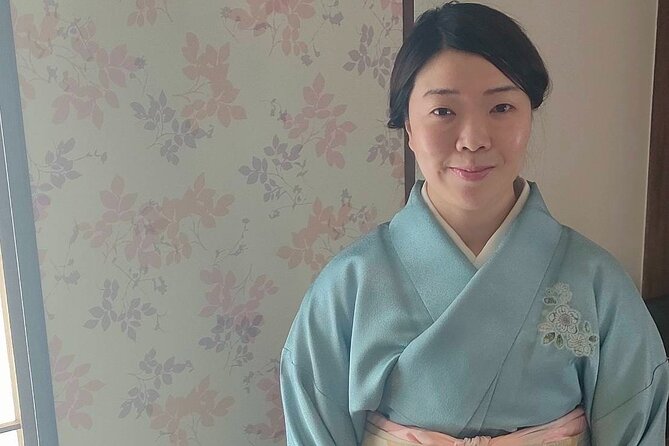
Enjoy the traditional art of the tea ceremony during the Japanese Culture Experience in Tokyo. Witness the intricate Japanese tea rituals that have been passed down through generations, showcasing the harmony, respect, purity, and tranquility embedded in this cultural practice.
Participants will learn the precise movements and gestures involved in preparing and serving matcha, a finely ground green tea. The experience offers a deep insight into the significance of the tea ceremony in Japanese culture and its role in fostering connections and mindfulness.
Plus, guests can explore the latest Yukata fashion trends, traditional Japanese garments similar to kimonos but more casual, often worn during summer festivals and other special occasions. Get ready to savor both the taste of tea and the beauty of tradition.
Yukata Dressing Experience
Discover the art of traditional Yukata dressing firsthand during the Japanese Culture Experience in Tokyo. Participants will learn the intricate techniques of donning this elegant garment. Yukata fashion holds a special place in Japanese culture, often worn during summer festivals or as comfortable loungewear.
The experience provides insights into the history and significance of yukatas, highlighting their role as traditional tea attire. Participants will be guided on how to properly wrap and secure the yukata, ensuring a perfect fit. From selecting the right accessories to understanding the appropriate footwear, every aspect of yukata dressing will be explored.
Traditional Tea Brewing Techniques
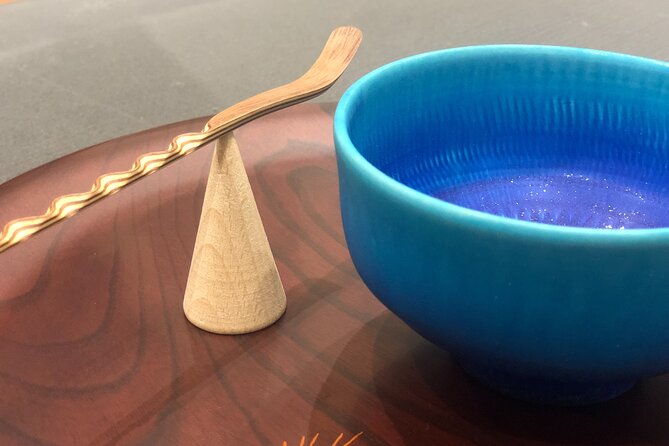
During the Traditional Tea Brewing Techniques segment of the Japanese Culture Experience in Tokyo, participants explore the art of preparing and serving tea with precision and grace. The session focuses on:
- Tea ceremony rituals: Attendees learn the intricate steps and gestures involved in the traditional Japanese tea ceremony, emphasizing respect and mindfulness.
- Yukata fashion: While brewing tea, guests are adorned in beautiful yukata attire, seeing the elegance of this traditional garment.
- Art of brewing: Expert instructors guide participants through the proper techniques of brewing tea, including water temperature, whisking methods, and tea-to-water ratios.
- Cultural significance: Participants gain insight into the historical and cultural importance of tea in Japan, understanding its role in social interactions and rituals.
History of Japanese Tea Culture
In exploring the rich tapestry of Japanese cultural heritage, the history of Japanese tea culture emerges as a captivating narrative of tradition and refinement. Japanese tea ceremonies, known as chanoyu or chado, have deep roots in Japanese history, dating back to the 9th century when tea was first introduced to Japan from China.
The ceremonies evolved over time, influenced by Zen Buddhism, becoming not just a simple act of preparing and drinking tea but a profound spiritual and aesthetic experience. Tea ceremony attire, often consisting of elegant kimono or yukata, plays a significant role in enhancing the ambiance and reverence of the ceremony.
The meticulous preparation, precise movements, and attention to detail in these ceremonies reflect the essence of Japanese culture and the pursuit of harmony and tranquility.
Etiquette During Tea Ceremony
When participating in a traditional Japanese tea ceremony, guests are expected to observe a set of intricate and meaningful etiquette practices that add depth and significance to the experience.
- Arrival: Guests should arrive on time or slightly early to show respect for the host.
- Attire: Wearing clean socks and modest clothing is essential; avoid strong perfumes.
- Seating: Guests should bow when entering the tea room and wait to be seated by the host.
- Drinking: Tea should be consumed in three sips, making a slight noise to show appreciation.
Following these Japanese customs enhances the tea etiquette experience, allowing participants to immerse themselves fully in the rich tradition of the tea ceremony.
Meaning Behind Yukata Designs
Exploring the intricate patterns and motifs adorning yukata reveals a fascinating tapestry of cultural symbolism and artistic expression. In Japanese culture, yukata designs often hold deep meanings and convey messages through symbols and colors. Traditional motifs like cherry blossoms symbolize beauty and the transient nature of life, while waves represent strength and resilience.
Colors also play a significant role in yukata designs, with red symbolizing passion and vitality, blue representing calmness and stability, and gold signifying wealth and prosperity. By understanding the symbolism and color meanings behind yukata designs, one can appreciate the thought and artistry that goes into creating these beautiful garments, adding an extra layer of richness to the cultural experience.
Cultural Significance of Tea Ceremony
Delving into the heritage of Japan, the Tea Ceremony holds a profound cultural significance that transcends mere beverage consumption.
- Significance: The Tea Ceremony, known as ‘chanoyu’ or ‘sado,’ embodies harmony, respect, purity, and tranquility.
- Rituals: Each movement in the ceremony, from the preparation of the tea to its presentation, is meticulously choreographed to symbolize these values.
- Historical Context: Originating in the 9th century, the ceremony evolved from Zen Buddhism, emphasizing mindfulness and presence.
- Cultural Influence: The Tea Ceremony has influenced various aspects of Japanese culture, from art and architecture to social interactions, fostering a deep appreciation for simplicity and beauty.
Connecting With Japanese Traditions
Enjoy the rich tapestry of Japanese traditions by partaking in unique cultural experiences that offer a profound connection to the country’s heritage and customs. When exploring Japanese traditions, two key elements play a significant role: traditional attire and culture.
| Traditional Attire | Cultural Immersion |
|---|---|
| Wearing a yukata, a casual summer kimono, allows participants to embrace the elegance of traditional Japanese clothing. | Engaging in a tea ceremony provides a deep dive into Japanese customs, rituals, and manners. |
| Donning a kimono showcases the intricate artistry and symbolism embedded in Japanese fashion. | Joining a traditional calligraphy session offers insight into the meticulous nature of Japanese arts and crafts. |
| Adorning oneself in a hakama, a type of traditional Japanese garment, symbolizes respect for the culture’s historical roots. | Participating in a traditional dance performance provides a glimpse into the expressive storytelling techniques of Japanese folklore. |
| Exploring the art of origami highlights the meticulous attention to detail and precision valued in Japanese craftsmanship. | Visiting historical temples and shrines offers a spiritual connection to Japan’s centuries-old traditions. |
The Sum Up
Enjoy the beauty and grace of Japanese culture with a tea ceremony and yukata experience in Tokyo.
From the tranquil atmosphere of the tea ceremony to the elegance of wearing a yukata, this tour offers a unique opportunity to connect with Japan’s rich heritage and traditions.
Discover the history, customs, and etiquette of Japanese culture in an intimate setting, leaving you with a deeper appreciation for this captivating country.


